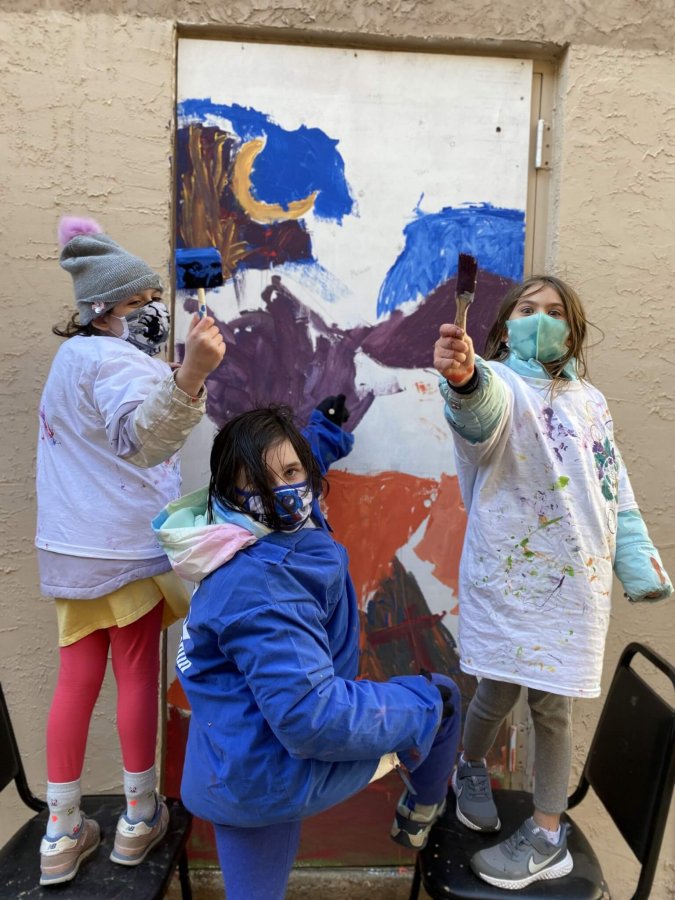
Esther saves the day! Mordechai becomes the second most powerful person in the kingdom! The Jewish people get a new holiday to joyfully celebrate every year! Last week, we finally reached the end of Megillat Esther (The Book of Esther). We noticed that unlike most other stories we’ve learned about the Jewish people (ex: the leaving Egypt story, the Chanukah story, moments when various ancestors were distressed, etc.), a particular important character was missing. God isn’t explicitly mentioned in the whole book, not even once!
How might this story be different if God were in it?
- None of it would have happened.
- NOTHING would be different – God isn’t real!
- God would have just fixed all the problems.
- People fixed the problems; they didn’t need God.
- Maybe God is there. I don’t know.
- God already shows up like when Esther doesn’t get killed – it doesn’t say so, but God probably stopped the king from killing her.
- God created people, so God can control what they think. Like if you create an art project, you can control what it is. If you create an invention, you can control what it does.
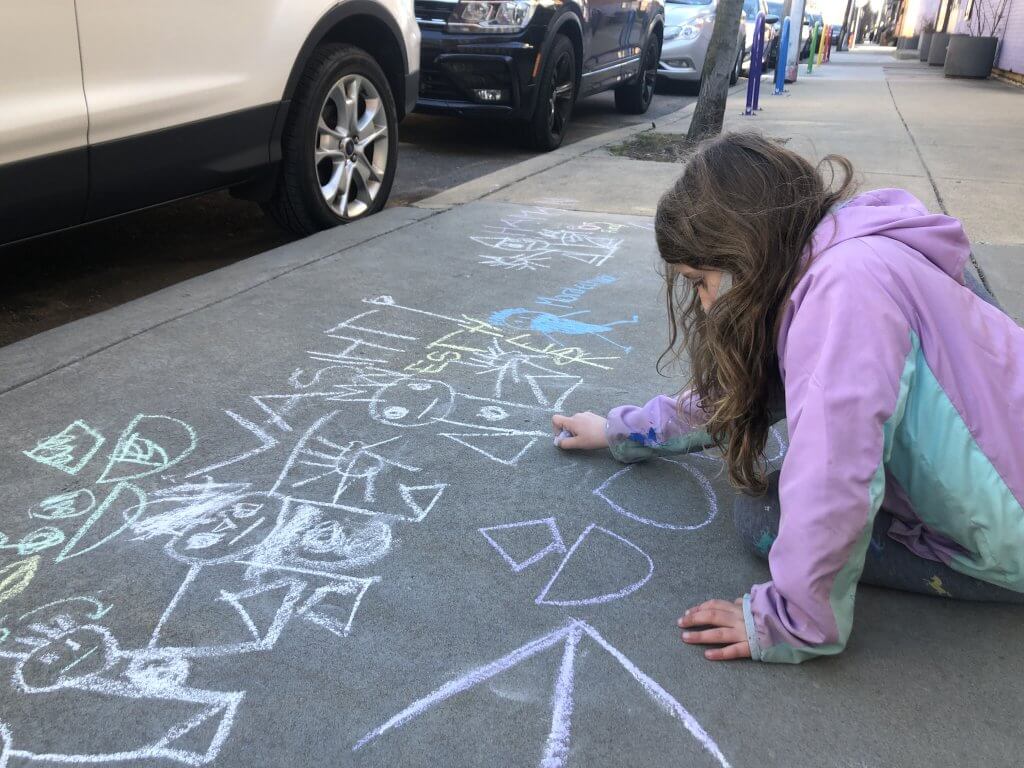
Because God is missing from the story, how does that change the importance of the other characters in the outcome?
- Since God isn’t really in the story, God doesn’t promise to punish the people who are mean to the Jewish people. Like in the leaving Egypt story, God sends plagues. In the Chanukah story, God makes the Greeks lose in the war.
- Esther and Mordechai had to save the Jews instead of God.
What does that say about us and our own stories? Who has the power to change our stories?
- If something needs changing, like if we need a new president, we can be the ones to change the vote and choose the new one!
- ME! I make the changes.
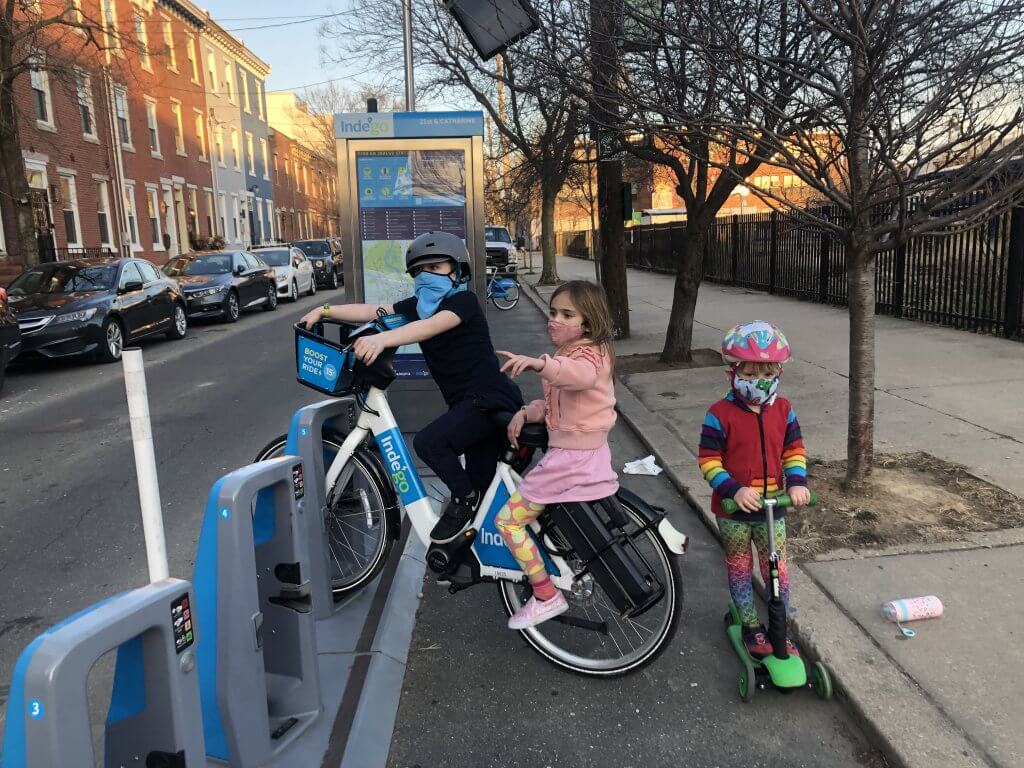
After exploring God’s role (or lack thereof) in the megillah, we unpacked some other moments in the final two chapters. Several weeks ago, one of our students asked why the people in the megillah had written a story about themselves. I promised her that we would come back to that question, and last week we finally did. The end of the megillah explicitly tells us that Mordechai and Esther wrote the document, explaining the story, and outlining what future generations of Jewish people should do to observe the occasion of the story. They left us with a bunch of traditions.
What is a tradition? Why are they important?
- A tradition is a certain thing that you follow.
- It’s like doing something related to a holiday (like lighting candles on Chanukah).
- It’s a thing that you do repeatedly. Like if you have cake just randomly, then that’s an occasion, but if you have cake every week, then that can be a tradition.
- They give meaning to the origin of the tradition.
- They make you happier.
- They give meaning to your family.
- Each family has their own traditions but they might be based on the same feelings.
- They can make you feel special and unique if they’re personal or family traditions.
- They can help us feel connected to a group or a community.
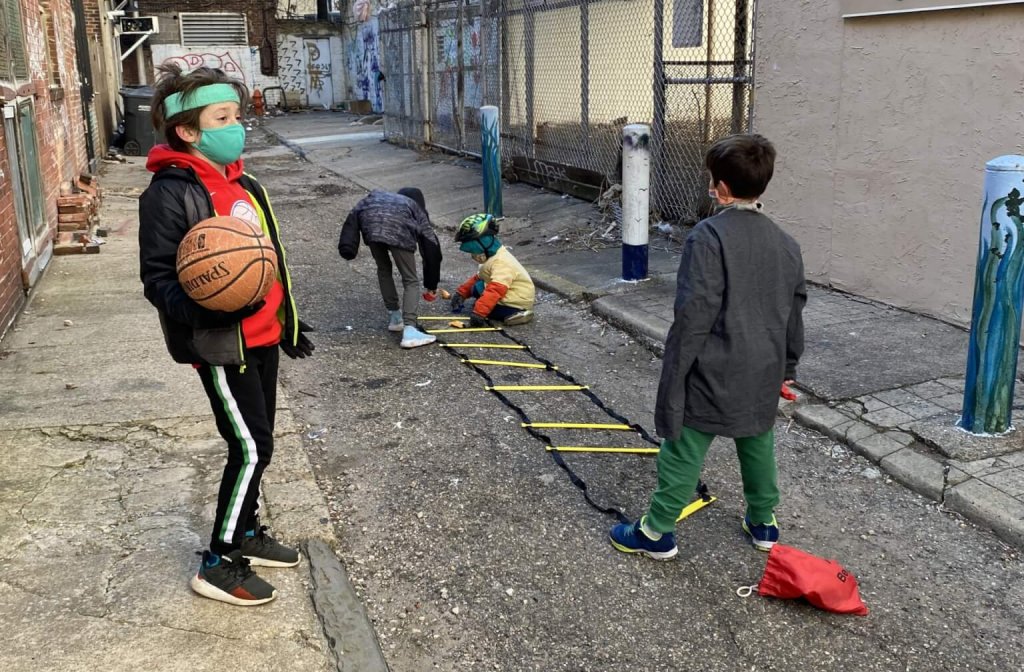
What is a tradition you have with your family?
- Birthday cake!
- Every fourth of July my family looks at the fireworks in the Poconos
- My brother and I celebrate Sock Day on Monday – we throw our socks in the air to avoid taking a bath.
- We clap for each other when someone picks up something from the floor and puts it away.
- My family always gets milkshakes on our way home from ski trips.
- We always eat meat on Friday nights for Shabbat, but not the rest of the week.
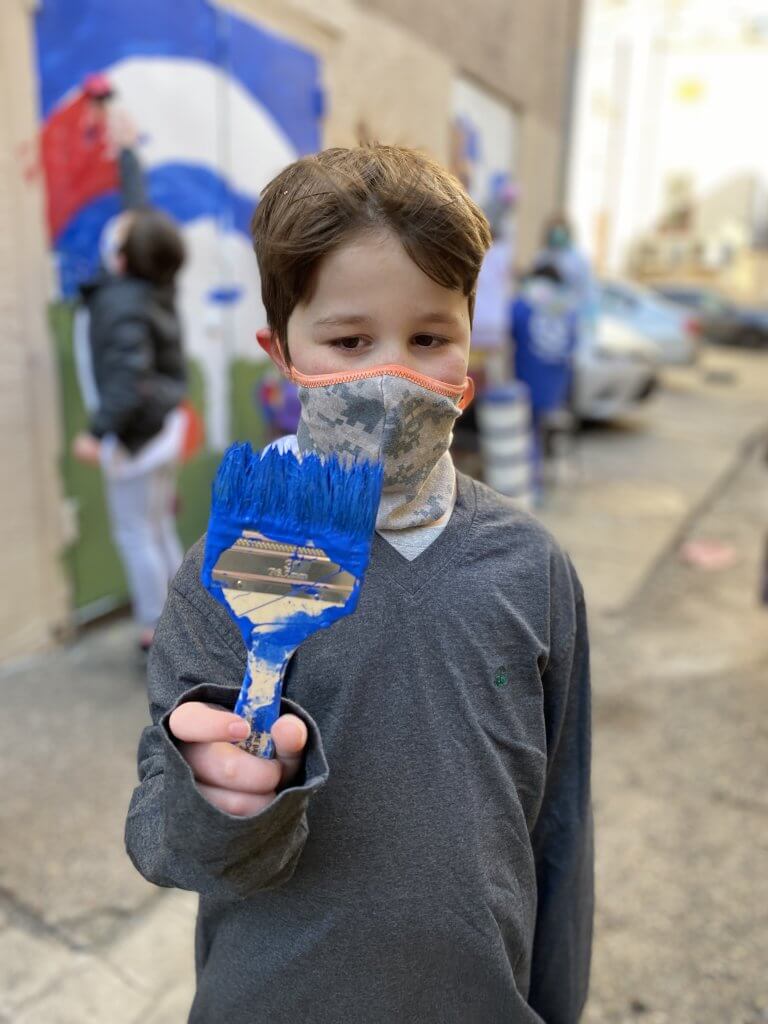
What are some of the important traditions we have at Makom?
- Brush it off lock it in
- How we share.
- We make friends.
- One crazy time!
- Doing tefilah every day.
- When we celebrate birthdays on zoom and we all unmute together to sing Happy Birthday.
- Munchkins to celebrate birthdays in person!
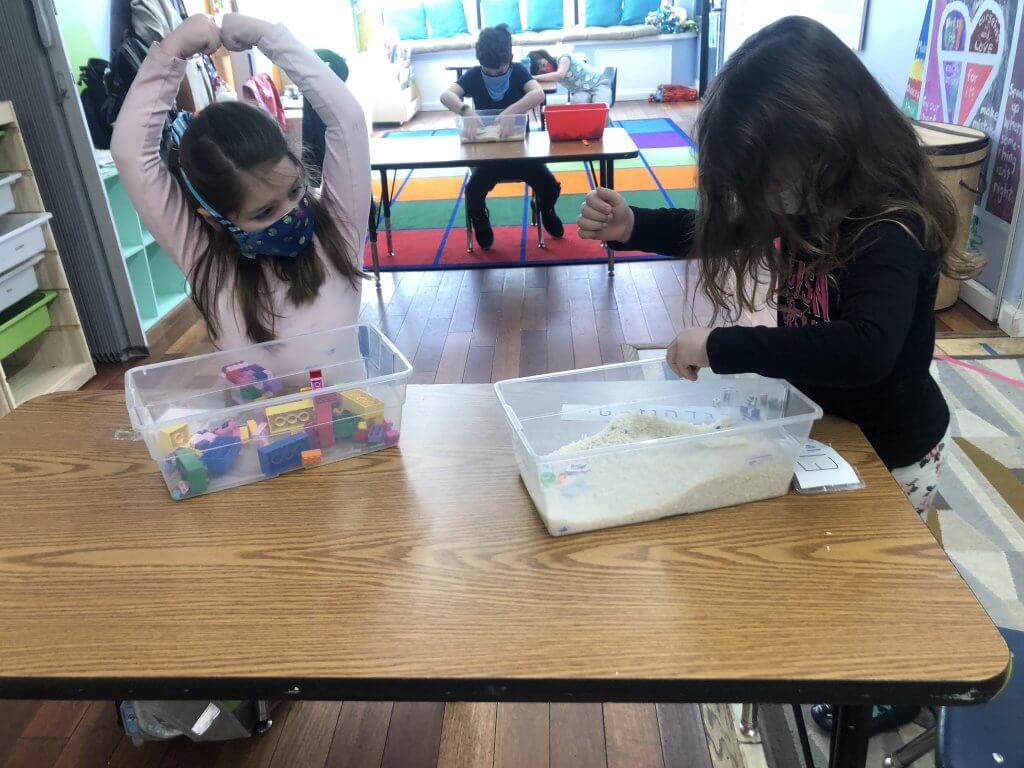
There are four mitzvot (commandments) Jewish people are supposed to follow to celebrate Purim: listening to the megillah, feasting and partying, sending mishloach manot (food gifts) to friends, and matanot la’evyonim (gifts to the poor). Why do you think these are the central, important ways for us to celebrate Purim?
- We celebrate them now because we celebrated them then, and we want to continue it.
- Maybe nobody stopped to think about it if it was a weird tradition, and now we just do it because we were told to.
- They remind us to have a good time. Or they remind us about having a good time.
- Sweet treats help (like from feasts or mishloach manot) help us to be happy!
- Listening to the story reminds us about why we’re celebrating.
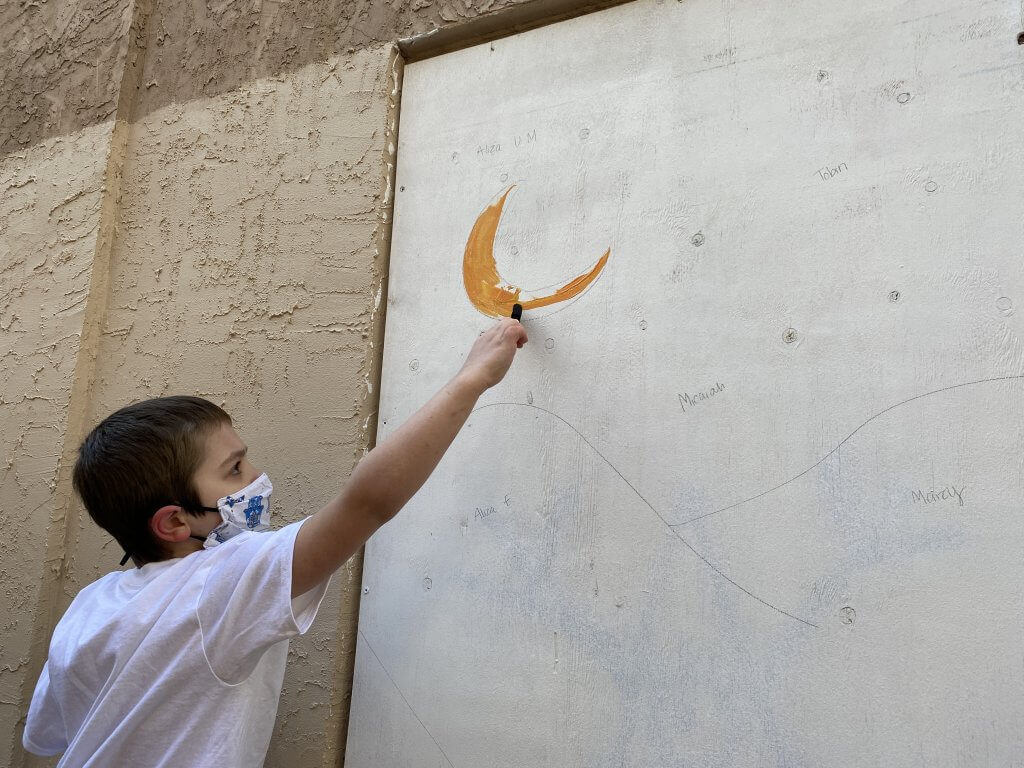
What is the most important Purim mitzvah to you?
- It wouldn’t be Purim without making hamantaschen or reading megillah.
- The most important one to me is mishloach manot.
- Baking hamantaschen would be the most important mitzvah to me if it was one.
- Having parties is the most important to me because you’re supposed to have fun and I love parties. At the end of the story everything is happy except for the people who aren’t Jewish.
- Giving gifts to the poor is the most important one to me. One time I wanted to throw my camp bag out the bus window because I saw a poor person.
Would you add anything to the list of mitzvot?
- Giving happiness to others and not stressing each other out.
- Bake hamantaschen because you have fun while you’re doing it and you get messy.
- We should change matanot la’evyonim to giving gifts to the poor but only if you can afford it.
- Try to make someone smile.
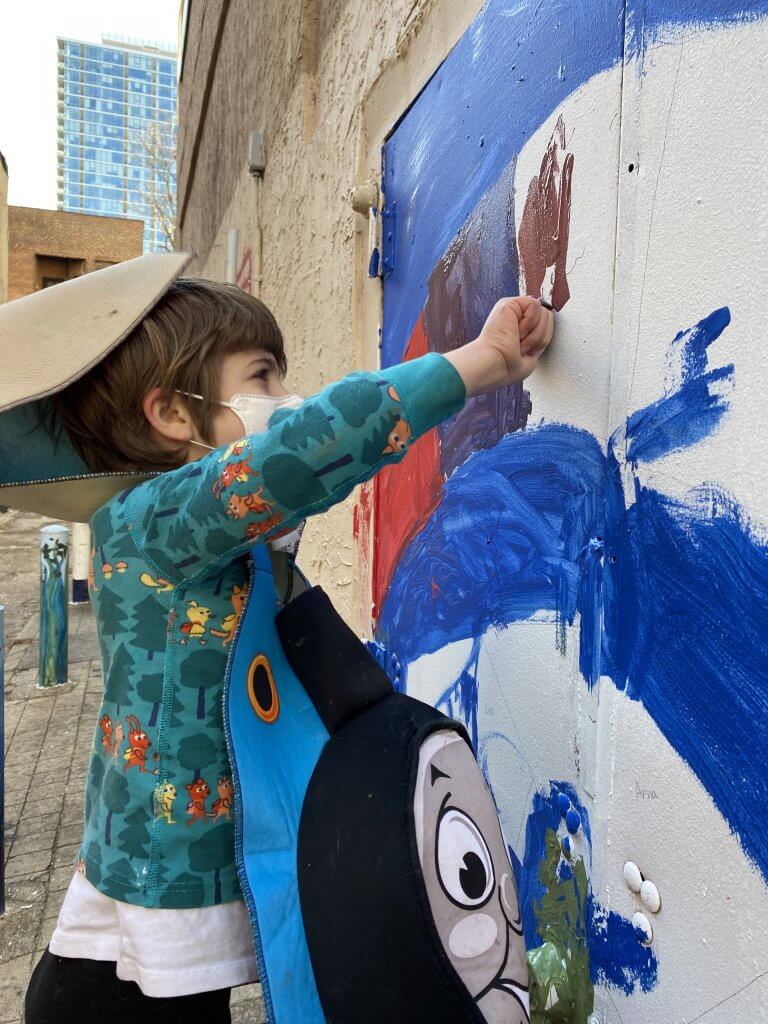
Why is it so important that we celebrate Purim every year? Why did Mordechai and Esther bother writing their story down for us?
- Because we win!
- But I think it’s fake. How did it work out so well? Too much of a coincidence.
- Remembering how Jewish people overcame the challenge of the Purim story can help us feel more capable of overcoming our challenges today.
A preschooler responded to that thought by wondering, “Who would be Haman today?” As is the case for most of our kiddo’s amazing, profound questions, there wasn’t a simple, single answer to this one. But with this weekend marking the one year anniversary of the start of quarantine in Philadelphia, I’d like to suggest that at least one version of Haman today is a global pandemic. I hope you can draw on the power of the Jewish people’s past resilience to feel capable of continuing to overcome your challenges and proverbial enemies today. And I hope you can draw on your perseverance from this past whole year (oof!) to know that you can continue to face whatever comes next.
